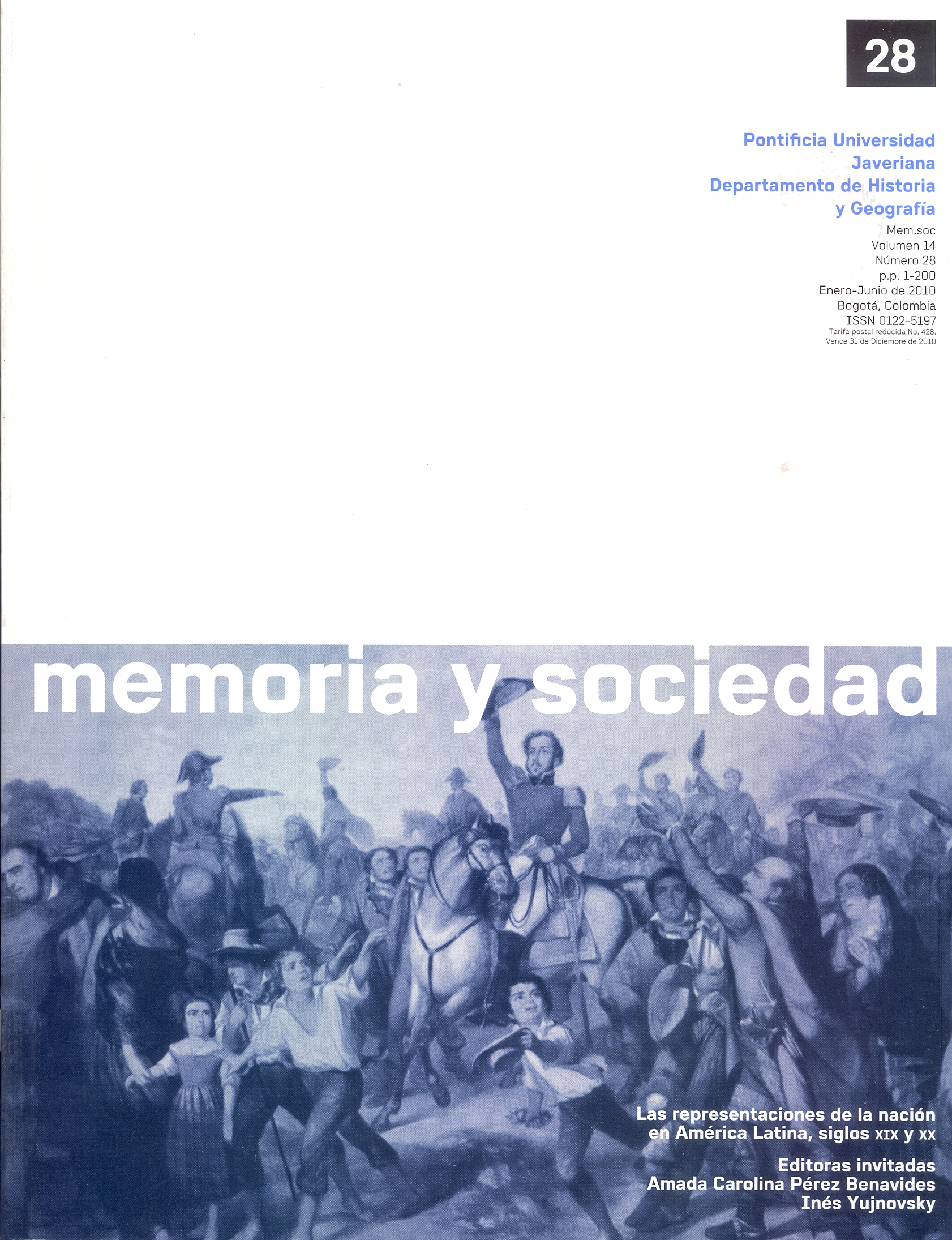Abstract
This article examines the names of streets, squares and markets in Montevideo, thought in 1843 by the romantic writer and politician Andrés Lamas. It takes in account the conditions of intellectual and political production that led his design. In these names, which refer to local history and geography, the author willed to provide a narrative that could strength Uruguayan national identity. Such intention is clear in a text in which he explains the reasons of his choice. To this respect, it is a very interesting initiative to explore the current problems that emerged by mid 19th century when anybody wanted to elaborate historical stories to sustain national identities in the Rio de la Plata.The journal Memoria y Sociedad is registered under a Creative Commons Attribution 4.0 International Public License. Thus, this work may be reproduced, distributed, and publicly shared in digital format, as long as the names of the authors and Pontificia Universidad Javeriana are acknowledged. Others are allowed to quote, adapt, transform, auto-archive, republish, and create based on this material, for any purpose (even commercial ones), provided the authorship is duly acknowledged, a link to the original work is provided, and it is specified if changes have been made. Pontificia Universidad Javeriana does not hold the rights of published works and the authors are solely responsible for the contents of their works; they keep the moral, intellectual, privacy, and publicity rights.
Approving the intervention of the work (review, copy-editing, translation, layout) and the following outreach, are granted through an use license and not through an assignment of rights. This means the journal and Pontificia Universidad Javeriana cannot be held responsible for any ethical malpractice by the authors. As a consequence of the protection granted by the use license, the journal is not required to publish recantations or modify information already published, unless the errata stems from the editorial management process. Publishing contents in this journal does not generate royalties for contributors.

